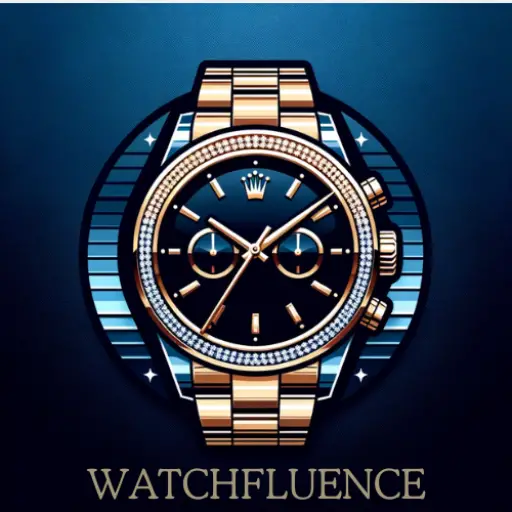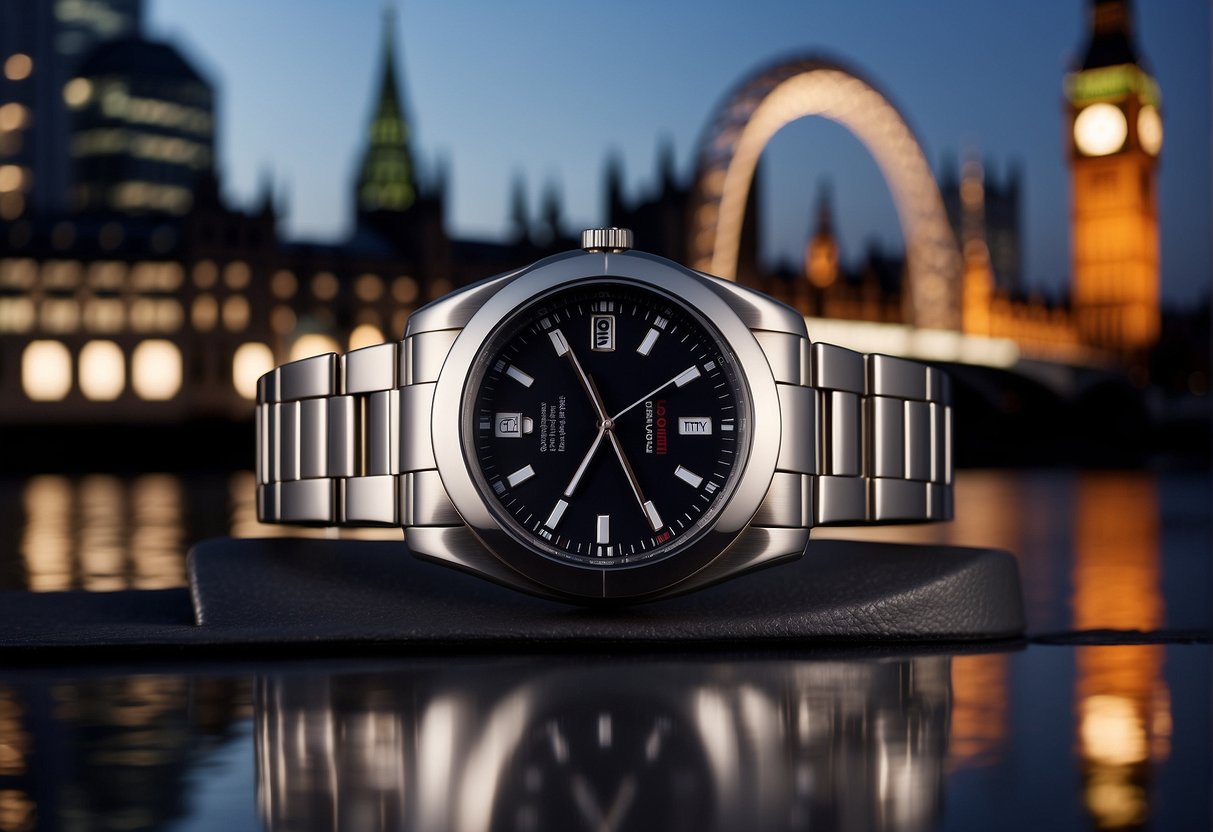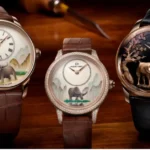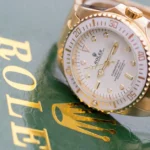English watch brands have long been synonymous with sophistication, meticulous craftsmanship, and a rich heritage of watchmaking that stretches back centuries. The United Kingdom, particularly England, has been home to pioneering horological innovation, producing iconic timepieces that have been treasured by watch enthusiasts around the world. From the precision of Greenwich Mean Time, which set the standard for global timekeeping, to the revered halls of London where master watchmakers honed their art, Britain’s contribution to the watch industry is undeniable.
History and Tradition of English Watchmaking

This history is not just about the passage of time, but also about the notable figures and pivotal moments that have shaped this esteemed industry.
The Foundations of Craftsmanship
The tradition of English watchmaking dates back to the 16th century, when skilled artisans began creating timepieces that were as much a work of art as they were a technological marvel. We must pay homage to the likes of John Harrisonwho, with his marine chronometers, greatly advanced the science of navigation. Our heritage is further enriched by George Graham, often referred to as the father of the chronograph. Innovation has always been at the core of our craftsmanship, inspiring watchmakers to achieve accuracy and artistry unrivaled for centuries.
Renowned British Watchmakers
Throughout the 19th century, names such as Edward John Dent left an indelible mark on our history. Dent’s contribution extended beyond exquisite timepieces, as his work on the iconic Big Ben reflects the dual importance of functionality and cultural significance in our trade. George Daniels, revered as one of the greatest watchmakers of the 20th century, breathed new life into our craftsmanship with his remarkable mechanical ingenuity. Roger W. Smith, a protege of Daniels, carries on this legacy, seamlessly blending time-honored methods with contemporary precision.
The Quartz Crisis and Its Impact
The advent of quartz technology in the latter half of the 20th century, largely driven by innovations from Japan, posed an existential threat to traditional watchmaking across the globe. The Swiss, German, and French industries responded with varying strategies, but it was a particularly turbulent time for English watchmaking. As the tides of time shifted towards electronic timekeeping, our time-honored traditions faced obsolescence. But not all was lost; determined artisans like John Arnold and the resolute house of Arnold & Son forged ahead, preserving the quintessence of British watchmaking for future generations.
Modern British Watch Brands and Innovations
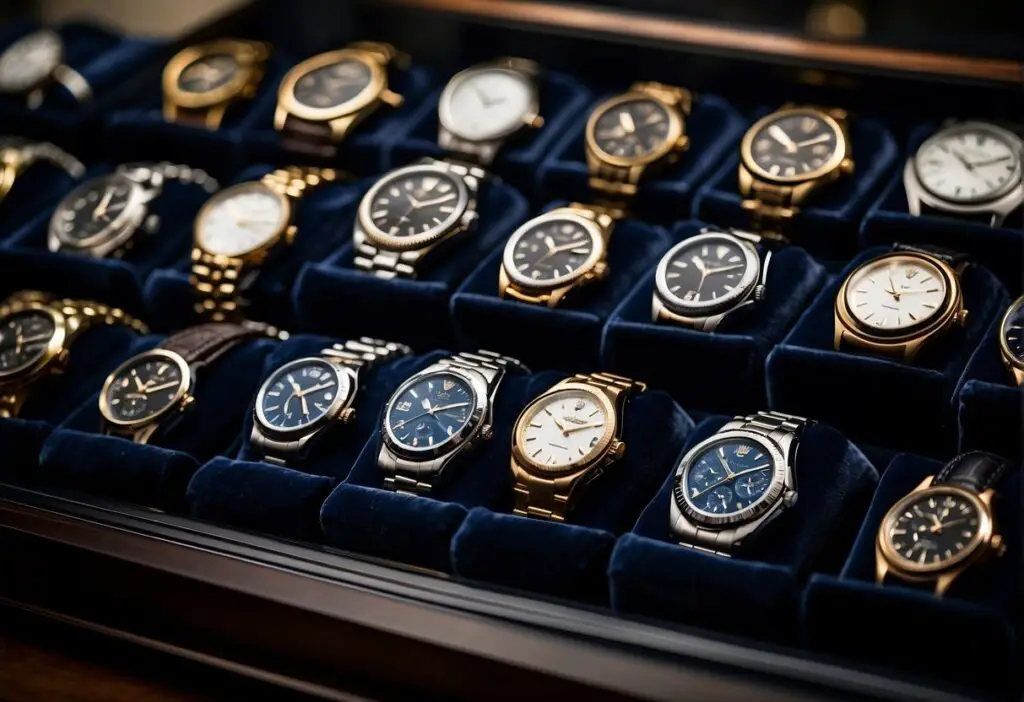
As we explore the current landscape of watchmaking, it’s evident that modern British watch brands have carved a unique niche in the horology world with both boutique and well-established names bringing innovative techniques and designs to the forefront.
From Boutique Brands to Household Names
British watchmaking has seen a resurgence with brands like Bremont Watches and Christopher Ward making substantial waves. Bremont, established in 2002 by brothers Nick and Giles English, has quickly become a leader in the industry, known for their durable pilot watches and for contributions to the aerospace industry. On the other hand, Farer Watches and Pinion are among the microbrand segment, celebrated for their distinctive designs and Made in Englandcraftsmanship. These brands, ranging from luxury watch contenders to smaller microbrands, showcase the expansive range and appeal of British watchmaking.
Innovations in British Watchmaking
Innovation remains a hallmark of the British watchmaking industry. Brands such as Graham Watches, with their racing chronographs, and Speake-Marin, the brainchild of the talented Peter Speake-Marin, are examples of firms blending tradition and bold new engineering. Additionally, Mr. Jones Watches stands out for their unique artistic timepieces that push the boundaries of conventional design. The British industry’s penchant for innovation can also be seen with the likes of Andreas Strehler and Robert Loomes, where the focus on precision and revival of old movements is paramount. This blend of heritage and innovation ensures the continuous evolution and global recognition of British watch brands.
The Significance of Craftsmanship and Design

In the realm of British watches, craftsmanship and design are pivotal. These elements distinguish timepieces that are not just tools for timekeeping, but also works of art esteemed by watch enthusiasts worldwide.
Merging Artistry with Functionality
When we examine timepieces such as marine chronometers and pilot watches, the harmony between artistry and functionality becomes evident. These watches must be exceptionally legible under various conditions, which demands an intricate balance of design and utility. The chronograph, a popular complication within British watches, is a prime illustrative of this, providing both a stop-watch function and maintaining everyday wearability.
- Functionality: Accuracy, durability, ease of use.
- Design: Dial layout, case shape, hand style.
The perfect mesh of these features leads to a watch that is not only practical but also aesthetically captivating.
Materials and Aesthetics in Watchmaking
The choice of materials in watchmaking affects both the aesthetics and the performance of British watches. Steel and titanium are favored for their resilience and suave appearance. Meanwhile, the use of an enamel dial introduces a classic and radiant charm that is resistant to fading over time.
The visual appeal of British watches is further enhanced through meticulously crafted details such as military watcheswith durable rubber straps, and dress watches that exude elegance through their subtle and slick design. Each material is selected with purpose, enhancing both the functionality and design of each British timepiece:
- Steel: Robust, versatile, shines with a polished finish.
- Titanium: Lightweight, strong, offers a modern edge.
- Rubber Strap: Durable, sporty, optimal for active wearers.
The British Influence on the Global Watch Market
We’ll explore how British brands have carved out their niche and fostered partnerships to enhance their presence on the world stage.
Competing in a Market Dominated by Swiss Brands
Swiss movements and Swiss-made watches have set the benchmark for quality in the watch industry. In contending with this, British watchmakers such as Vertex and Bremont have focused on quality and heritage to make their mark. For instance, Bremont, based in Henley-on-Thames, has become synonymous with pilot’s watches and marine chronometers, drawing on Britain’s aviation history. Meanwhile, William Wood Watches, taking its cues from the legacy of the firefighting community, emphasizes uniqueness and service dedication. By incorporating materials from firefighting equipment, they’ve managed to stand out for both story and substance.
British watch companies, although fewer in number compared to those from Switzerland, Germany, or Japan, have nonetheless made a profound impact by advocating for transparency in manufacturing and offering fair prices—qualities that appeal to a segment of consumers who value ethical production and accessibility.
Collaborations and Partnerships
To improve their competitive edge, British watchmakers have not shied away from fostering collaborations and partnerships. An example is AnOrdain, a Glasgow-based company, which combines traditional techniques with modern design sensibilities producing watches with enamel dials that are highly sought after. In Bristol, companies like Marloe Watch Company and Fairoak Machinery, emphasize meticulous craftsmanship and community-building through local collaborations.
Moreover, these partnerships aren’t limited to domestic collaboration. For instance, Schofield Watch Company draws upon not just British but also German engineering for their beautiful timepieces. By partnering with suppliers and creators both home and abroad, British brands like Schofield and Marloe Watch Company enrich the British offer with a diverse set of aesthetics and technologies, moving beyond the quintessential Swiss-made movement that has long dominated.
FAQ-English Watch Brands
What distinguishes English watch brands from other international watchmakers?
English watch brands are distinguished by their rich horological heritage, innovative contributions to watchmaking, and a focus on craftsmanship and luxury. Historically, English brands have been pioneers in developing key advancements like the marine chronometer. Today, they continue to emphasize bespoke production and artisanal techniques, often incorporating traditional methods that have been passed down through generations.
Can you recommend some notable English watch brands?
Certainly! Bremont is well-known for its durable pilot watches and a strong commitment to manufacturing in England. Christopher Ward offers a wide range of high-quality watches at accessible prices, making luxury more attainable. Arnold & Son is another prestigious brand, known for its beautifully complex designs and sophisticated mechanical movements.
Are watches from English brands considered good investments?
Watches from English brands can be excellent investments, especially those from brands with a long-standing reputation for quality and craftsmanship. Limited edition models or watches from historically significant brands tend to appreciate in value. As with any investment in timepieces, the potential for appreciation can vary greatly, so it’s advisable to research specific models and market trends, and consider your personal attachment to the piece as well.
If you liked this blog post about the topic: English Watch Brands, don’t forget to leave us a comment down below to tell us about your experience with it.
